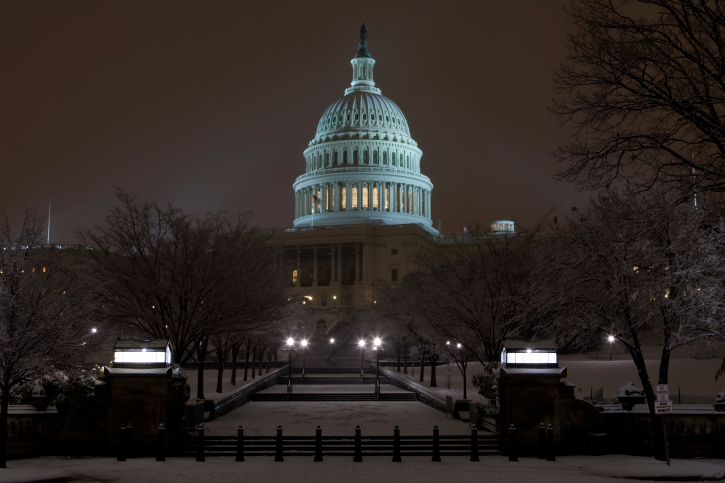
Public access to regulations takes center stage at congressional hearing.
Debate over public access to all regulatory standards continued recently before a U.S. House of Representatives subcommittee. The debate centered on a practice called “incorporation by reference,” which some legislators say keeps binding laws hidden from the public.
Federal, state, local, and municipal regulatory bodies and governments incorporate by reference when they officially adopt standards that have been developed previously by industry groups or other private organizations. Once incorporated into a regulation, the private standard becomes as binding as any government-written law.
Concerns arise, however, because rather than being reprinted in a publicly accessible format, such as the Code of Federal Regulations (CFR), incorporated standards are simply referenced in regulations. For example, if a person wanted to know the test federal regulation requires them to use to detect a particular pesticide, fungicide, or chemical in seeds, the CFR simply directs the reader to consult the Association of Official Seed Analysts, Handbook No. 26. In other words, the procedure itself is not described in the regulation. Members of the public thus cannot simply go to the federal rule-book to see what the incorporated standards require.
At the federal level, the Office of the Federal Register has mandated that any incorporated standards be made “reasonably available” to the public. But in practice, agencies can meet this standard and yet interested members of the public can still need to go to great lengths to find out what the incorporated standard says. Members of the public may need to contact the private organization that wrote the standard and, sometimes, even pay that organization a hefty access fee. Or they may need to travel to Washington, D.C., to access the standard in a tightly controlled government reading room.
One justification that industry groups, private organizations, and their supporters make for requiring payment to access a standard incorporated by reference stems from the Copyright Act. These groups argue that private organizations that develop standards are authors of those standards and are thus entitled to copyright protection and all of its associated privileges, including the right to charge a fee for their original works.
The House subcommittee solicited testimony as to whether the Copyright Act should be amended so that standards, once incorporated into government rules, would no longer be subject to copyright protection.
Patricia Griffin, Vice President and General Counsel of the American National Standards Institute (ANSI), testified in favor of keeping copyright protection in place for standards developed by private industry and organizations. ANSI is a non-profit organization that endorses the standards development process used by industry groups and private organizations and “[approves] their finished documents as American National Standards.” ANSI is not a government organization.
Griffin argued that the “public-private partnership,” in which governments work together with standards development organizations, is the most effective way to ensure that the resulting rules are balanced, rather than being “dominated” by either party’s interests. This partnership is most effective, she said, because standards organizations are able to provide the administrative support needed to bring together a variety of stakeholders, including consumers, in the development of industry standards.
Griffin further stated that the Office of Management and Budget‘s Circular No. A-119 requires federal agencies to use standards that are developed by private organizations rather than those developed by the government “whenever possible.”
Griffin also addressed the argument made by members of the academic community and others that the public should be able to access standards for free once those standards have been incorporated into government rules.
She stated that in order for a standard to be “reasonably available,” that standard must only be “accessible.” “It does not,” she testified, “require that the standard be available without a fee.” She noted that this reading was recently endorsed by the Office of the Federal Register, which suggested that reasonably available does not mean that the standard be provided free of charge.
Among other things, Griffin also argued that standards-developing organizations invest a great deal of resources into creating standards, and one of the only ways to recoup those expenditures is through charging an access or licensing fee for the standards. Without that revenue, she said, many standards-developing organizations would cease to exist, and it would then fall to the government – and ultimately the taxpayers – to take their place.
Representing the other side of the debate, Carl Malamud, President and founder of the non-profit open government advocacy group, Public.Resource.Org, called for amending the Copyright Act so that once standards are incorporated into government rules, they can no longer be protected by copyright.
Malamud said that standards that are incorporated into law are not entitled to copyright protection because the law “is owned by the people.” Malamud argued that because people are subject to the law, they must be able to educate themselves about the law. A standard that becomes binding law should therefore be available to the public.
Although standards-developing organizations argue that they must charge to access their standards in order to continue operations, Malamud stated that their primary goal is to ensure that their standards are adopted as law. In this way, he said, organizations get the “gold seal” of the people and can sell additional services, such as certification and membership fees.
In response to questioning from the subcommittee, Malamud added that when the public is able to download online data for free, volunteers often find ways to make that data easier for the public to access on more platforms. “[B]y having the bulk data available,” he said, “we encourage citizen participation in the process of informing each other.”
Five out of the eight members of the subcommittee who commented on or asked questions about incorporation by reference at the recent hearing explicitly agreed that once an agency or government incorporates a standard, it should be available to every member of the public for free.
Representative Hank Johnson (D. – GA) said, “At its core, this issue touches on the American ideal for justice that we must know the laws that govern us.” He further emphasized the importance of public access to the law “when that concept of ‘ignorance is no excuse’ pervades our process.”
Representative Doug Collins (R. – GA), while agreeing that “the law” should be available for free, was cautious about taking the idea of free access too far. Focusing on state-level incorporation by reference, he noted, for example, that comments and notations to the official Georgia code are not law. Therefore, such comments should continue to be protected as original works of authorship under copyright law.
Still, some subcommittee members insisted that they would not support any changes to the Copyright Act unless such changes included making standards available to the public for free. Representative Darrell Issa (R. – CA) said, “we will have to rectify the ambiguity in the law so that every American has free access to every law that he or she must live under.”
Echoing Representative Issa’s sentiments, Representative Zoe Lofgren (D. – CA) declared that, “it seems to me very clear that you cannot have secret law.”



